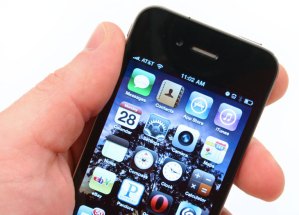
Apple has applied for a patent on technology that could deactivate iPhones or other devices when it believes the device is being used illegitimately or by unauthorized users—and the devices could make these determinations both by how the device is being used, but also through biometric information like a user’s face, voice, and even their heartbeat.
The patent application surfaced last week, and targets a number of behaviors Apple describes as compromising or hacking a device, including removing the SIM card, unlocking, jailbreaking, and even moving a predetermined distance from a synced device.
The application also identifies a number of methodologies for determining whether a user is legitimate, including photographing the user and applying facial recognition software, analyzing their voice, and analyzing a users’ heartbeat using a “heartbeat sensor”—which, so far as we know, doesn’t exist in any current Apple product. In addition to potentially shutting down the device if unauthorized users are detected, the technology could also be used to wipe sensitive information—address books, email, passwords, account details, and those sensitive text messages—if it detects an unauthorized user.
Other implementations could have the device go into spy mode, recording and reporting the users’ activities, including sending pictures of the current user to a remote service, along with keylogs, location information, and data traffic.
Apple has received a good deal of criticism for tightly controlling the iPhone, iPad, and other device lines, often in ways that interfere with legitimate uses of the devices. However, there are undoubtedly uses of these sorts of biometric identification technologies that could appeal to some users, and Apple’s existing Find my iPhone service has found a number of supporters.
The Library of Congress recently ruled that jailbreaking mobile phones to switch carriers or add unauthorized applications is not a violation of the Digital Millennium Copyright Act.


